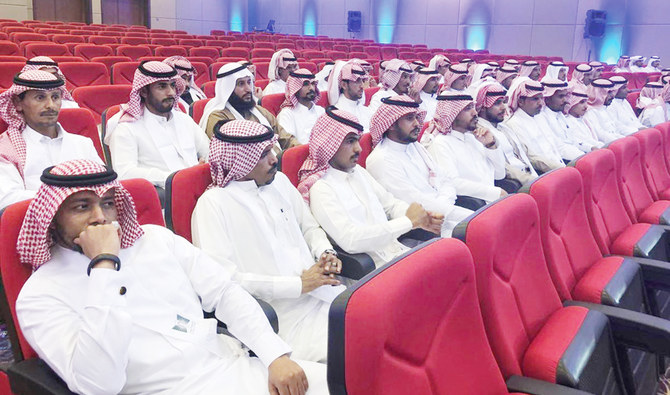Forty-five Saudis from the Umluj and Al-Wajh communities are preparing to begin work at the Red Sea Development Company (TRSDC), after completing an intensive training program in landscaping.
Following a graduation ceremony at the Umluj campus of the University of Tabuk, the new employees will begin work at TRSDC’s million-square-meter landscape nursery.
The facility will eventually provide more than 15 million plants required to landscape the Red Sea Project, one of the world’s most ambitious tourism initiatives.
The project to train and employ members of the local community at the nursery was managed in collaboration with the NGO Sakan, Umluj Municipality and the University of Tabuk.
“This initiative is part of TRSDC’s commitment to provide opportunities for those living in close proximity to our destination, to ensure that these communities are among the first to benefit from the development,” said John Pagano, CEO of TRSDC. “It is exciting to see our new employees graduate with the skills they need to increase their income and build career paths within the Red Sea Project,” he said.
The graduation ceremony, held at the Umluj campus of the University of Tabuk on Sunday, Feb. 16, was attended by TRSDC representatives, including Ahmed Ghazi Darwish, chief of staff for TRSDC, Faisal bin Mohammed Abu Dahir, undersecretary of academic affairs at the University of Tabuk, and Ahmed Alhmidi, Sakan CEO.
“I am honored to stand alongside a group of young people who have worked tirelessly to prove their determination and abilities, and who will now join our organization to operate one of the key facilities at our ambitious project,” Darwish said.
“This pioneering program provided training that emphasized the core skills needed to excel in their work at the nursery, narrowing the skill gap between theoretical training and on-the-job experience,” he said.
FASTFACTS
• Each trainee received theoretical and on-site training at Umluj Municipality’s nursery. Groundsmen completed a six-week course and the five supervisors completed a nine-week course for a total of 216 training hours.
• Following a graduation ceremony at the Umluj campus of the University of Tabuk, the new employees will begin work at TRSDC’s million-square-meter landscape nursery.
Each trainee received theoretical and on-site training at Umluj Municipality’s nursery. Groundsmen completed a six-week course and the five supervisors completed a nine-week course for a total of 216 training hours.
The study schedule also comprised 144 hours of additional theoretical training at the Umluj campus, where trainees completed a conversational English course, including key words, terms and phrases related to agriculture, plant nursing and irrigation.
The program was launched following the awarding in April 2019 of a contract for a joint venture between Saudi Arabia’s Nesma Trading Company and the UAE-based Professional Landscape Company to build the 100-hectare nursery.
Construction of the nursery is complete and it is expected to begin operations in the first quarter of 2020.




























